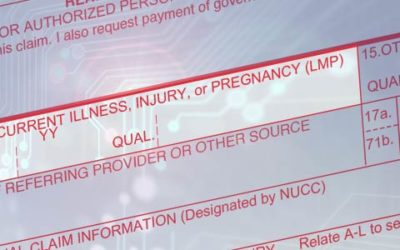by Mario Fucinari •
DC, CPCO, CPPM •
In healthcare, access to medical records plays a pivotal role in delivering effective and efficient patient care. Timely access to these records not only empowers patients to take control of their health but also fosters seamless communication between healthcare providers, leading to better-informed decisions and improved outcomes. In the past, due to HIPAA concerns, if a patient requested copies of their records, they were required to come to the office or go online to fill out forms requesting the copies or the transfer of their records However, recent legislation has not only restricted this process, but delaying the release of records by having patients fill out forms, may result in fines and penalties.
Access to medical records is crucial for several reasons. First, it enables patients to actively participate in their healthcare journey by understanding their diagnoses, treatments, and medications. This understanding fosters patient engagement and compliance, leading to better health outcomes. Additionally, timely access to medical records promotes continuity of care, especially in scenarios where patients seek treatment from multiple providers or healthcare facilities. It allows healthcare professionals to make well-informed decisions by having access to comprehensive and up-to-date information about the patient’s medical history, medications, allergies, and test results.
Despite its evident benefits, ensuring timely access to medical records poses multiple challenges. One of the primary obstacles is direct access to information such as radiology and laboratory reports. Requesting records via a fax to a facility may be met with delays or no response. Many diagnoses rely on imaging reports, without which would block the use of the diagnosis until it is confirmed. An example of this would be a herniated disc. Seasoned practitioners and patients who may not be technologically savvy, may be unaware that the information is often readily available on a patient’s health portal.
Still, concerns regarding patient privacy and data security also contribute to the reluctance to grant access to medical records. Healthcare organizations must navigate complex regulations such as HIPAA, which governs the privacy and security of patients’ health information. While these regulations are essential for safeguarding patient data, additional regulations such as the 21st Century Cures Act, HIPAA, and state regulations have dismissed these concerns due to recent technological advances. Unfortunately, electronic health record software for chiropractors has not kept up with technological changes and to subvert requirements, have decided not to seek or maintain software government certification.
Despite these concerns, providers and staff must be aware of restrictions on access to patient records. Multidisciplinary offices that utilize mental health professionals must be aware that psychotherapy notes are not the same as medical records. Psychotherapy notes are not accessible to anyone other than the mental health provider, not even another provider or staff within the same office. Even if a request is received for the release of medical records, psychotherapy notes are not to be released.
In other cases, such as a personal injury case, even if a patient has retained legal counsel, a lawyer may not have access to the patient’s records without a signed authorization by the patient.
Providers and staff who are not aware of the rules, regulations, and consequences related to the misuse or information blocking, may face significant penalties. Providers and staff must prioritize the implementation of efficient and patient-centric solutions. Education and the adoption of policies and procedures related to patient access and release of records are essential.
Furthermore, healthcare providers should leverage technology to empower patients with direct access to their medical records through secure patient portals or mobile applications. Since many patients have access to their medical records through a patient portal, make the patient an advocate for the transfer of information by accessing their records and printing needed reports before coming to your office. These platforms enable patients to view their health information and communicate with their healthcare providers.
In conclusion, timely access to medical records is essential for delivering high-quality patient care and promoting patient engagement. Despite the challenges posed by fragmented healthcare systems and privacy concerns, healthcare organizations must prioritize the implementation of interoperable EHR systems and patient-centric technologies to bridge the access gap. By empowering patients with access to their medical records and facilitating seamless communication between healthcare providers, we can ensure continuity of care, enhance patient outcomes, and ultimately improve the overall healthcare experience.
Dr. Mario Fucinari is a Certified Professional Compliance Officer, Certified Physician Practice Manager, Certified Insurance Consultant, and a Medicare Carrier Advisory Committee member. He is the author of several HIPAA and compliance-related manuals. As a ChiroHealthUSA Speaker’s Bureau member, he travels throughout the year, speaking to audiences nationwide and sharing his chiropractic expertise and insights about documentation, billing, and coding issues. If you wish to have Dr. Fucinari as a speaker for your organization, contact ChiroHealthUSA. Questions and availability requests can be sent directly to Dr. Fucinari at www.AskMario.com or email at doc@askmario.com.










 ▶︎
▶︎  Why is the Discount Challenge prize amount $15,024? Because that is the average “per-occurrence” fine for Medicare inducements. That’s not $15,024 per patient, that’s not per provider, that’s PER VISIT. Stinks, doesn’t it? To us, the prize amount is worth the investment if we can help our profession better understand proper discounting.
Why is the Discount Challenge prize amount $15,024? Because that is the average “per-occurrence” fine for Medicare inducements. That’s not $15,024 per patient, that’s not per provider, that’s PER VISIT. Stinks, doesn’t it? To us, the prize amount is worth the investment if we can help our profession better understand proper discounting.